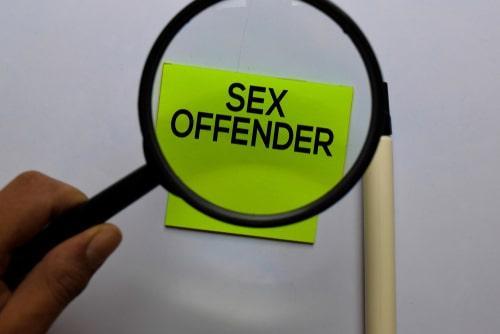Recent Blog Posts
Is BDSM a Solid Criminal Defense for Sex That Ends in Injury or Death?
 There is no accounting for taste, as the old saying goes, and nowhere is this more true than when it comes to sexual preferences. Yet there is growing concern that some people - men in particular - are successfully using their personal taste as an illegitimate defense in horrific murder crimes. When violent sex results in inadvertent injury or death, is the perpetrator truly culpable of assault or murder? And do people who enjoy BDSM need to be worried about potentially facing criminal penalties in a Texas court?
There is no accounting for taste, as the old saying goes, and nowhere is this more true than when it comes to sexual preferences. Yet there is growing concern that some people - men in particular - are successfully using their personal taste as an illegitimate defense in horrific murder crimes. When violent sex results in inadvertent injury or death, is the perpetrator truly culpable of assault or murder? And do people who enjoy BDSM need to be worried about potentially facing criminal penalties in a Texas court?
Is BDSM Legal in Texas?
Bondage, discipline, dominance, submission, and sadism, or BDSM, is a broad term that is used to describe sexual behaviors that are often considered deviant in nature. While some types of BDSM are objectively harmless, others can be violent, humiliating, and sometimes dangerous.
Why Does Texas Have a Specific Law About the Sexual Exploitation of a Child?
 Texas law considers the welfare of children, disabled persons, and the elderly of the utmost importance. The inability of these protected groups to speak out for their wellbeing or to take action against predatory adults makes it all the more important for the law to protect their best interests at all times. Because of the internet’s saturation with child pornography and the difficulty of catching those responsible for creating and distributing indecent images, Texas has created laws that crack down all the harder on people who sexually exploit children.
Texas law considers the welfare of children, disabled persons, and the elderly of the utmost importance. The inability of these protected groups to speak out for their wellbeing or to take action against predatory adults makes it all the more important for the law to protect their best interests at all times. Because of the internet’s saturation with child pornography and the difficulty of catching those responsible for creating and distributing indecent images, Texas has created laws that crack down all the harder on people who sexually exploit children.
But while there are many types of child exploitation, Texas law means something very specific when it comes to charges of sexual exploitation of a child. If you are facing charges for this serious crime, it is important to understand what it is and what the consequences are.
What is Child Sexual Exploitation in Texas?
What Can Be Considered Child Endangerment in Texas?
 Accusations of child endangerment are easy to make and difficult to defend against. After all, in some cases whether a child is being endangered is somewhat subjective; discipline that one person finds reasonable may be seen as abusive to another. Texas law has specific definitions of what kind of behavior constitutes legal child endangerment or abuse, but it can be a long, uphill battle for a parent, neighbor, or teacher to clear themselves of charges.
Accusations of child endangerment are easy to make and difficult to defend against. After all, in some cases whether a child is being endangered is somewhat subjective; discipline that one person finds reasonable may be seen as abusive to another. Texas law has specific definitions of what kind of behavior constitutes legal child endangerment or abuse, but it can be a long, uphill battle for a parent, neighbor, or teacher to clear themselves of charges.
If you have been accused or charged with a crime against a child, you may feel as though explaining your situation and trying to defend yourself is a reasonable approach. But the police, Child Protective Services, and prosecutors often have an agenda and are not so eager to see potential child abusers as innocent. Instead, learn as much as you can about how these accusations could impact you, and then contact a Texas criminal defense attorney with experience conducting a rigorous defense against child endangerment charges.
Can People on the Texas Sex Offenders List Get Their Names Removed?
 While most of us think of the term “sex offender” and think of serious sex offenses like rape, child sexual assault, or prostitution, the truth is that even crimes like indecent exposure, which are typically only a Class B misdemeanor, can result in the requirement to register as a sex offender as well. Once someone’s name is caught up in the Texas sex offender list, it is very hard to get it removed and the consequences associated with being a sex offender are devastating.
While most of us think of the term “sex offender” and think of serious sex offenses like rape, child sexual assault, or prostitution, the truth is that even crimes like indecent exposure, which are typically only a Class B misdemeanor, can result in the requirement to register as a sex offender as well. Once someone’s name is caught up in the Texas sex offender list, it is very hard to get it removed and the consequences associated with being a sex offender are devastating.
Fortunately, it may be possible for some people to deregister as a sex offender. Different sex crimes have different lengths of sex offender registration, but if you meet certain requirements, you may be able to get your name taken off the list. Talk to a Texas criminal defense attorney to learn more about your options.
How Can I Get My Name Taken Off the Texas Sex Offenders List?
How Can a Texas Clergy Member Defend Against Child Sex Abuse Charges?
 Many Texas churches have come under close scrutiny for their handling of cases involving child sexual abuse by clergy members. The clergy members were often powerful, well-protected men in their communities and even in the world at large, making successful prosecution difficult for many years. Now, however, victims of child sexual abuse are finally getting their day in court and thousands of esteemed clergy members from worldwide religions are being sent to prison for their crimes.
Many Texas churches have come under close scrutiny for their handling of cases involving child sexual abuse by clergy members. The clergy members were often powerful, well-protected men in their communities and even in the world at large, making successful prosecution difficult for many years. Now, however, victims of child sexual abuse are finally getting their day in court and thousands of esteemed clergy members from worldwide religions are being sent to prison for their crimes.
In the midst of rightfully-placed compassion for bona fide victims of abuse, many clergy members who are innocent have also been caught up in accusations of child sexual abuse that they did not commit. And, whether an individual is guilty or not, he or she is always entitled to a vigorous defense against the charges they face. That is where a Texas child sex abuse defense attorney comes in. If you are a clergy member who has been accused of sexual abuse, get a criminal defense attorney right away.
Texas Cheerleading Star Receives 12 Years of Prison for Child Pornography Charges
 A well-known star of a reality TV series recently received a sentence of 12 years in federal prison for receiving and attempting to receive child pornography, and trying to solicit minors to engage in sexual contact with him. The 22-year-old man is accused of using his fame as a prominent cheerleader and media star to solicit the minors, who lived in Florida, Illinois, and Texas. Although he initially pleaded not guilty, he later did plead guilty to two of the charges.
A well-known star of a reality TV series recently received a sentence of 12 years in federal prison for receiving and attempting to receive child pornography, and trying to solicit minors to engage in sexual contact with him. The 22-year-old man is accused of using his fame as a prominent cheerleader and media star to solicit the minors, who lived in Florida, Illinois, and Texas. Although he initially pleaded not guilty, he later did plead guilty to two of the charges.
Convictions for child pornography and soliciting a minor carry serious consequences under Texas and federal law. This case illustrates perfectly how prosecutors are eager to pursue sex offenders and punish them to the fullest extent of the law, using victims’ testimonies to bolster their case and minimize public sympathy for perpetrators who are very often victims of sexual abuse themselves. If you are facing charges of this nature, get help right away from a Texas criminal defense attorney who will aggressively defend you.
What Kind of Punishment Am I Facing for a Vehicular Manslaughter Charge in Texas?
 Texas law defines manslaughter as an offense that occurs when one person recklessly causes the death of another person. In contrast to homicide, in which a killing is deliberate or even premeditated, manslaughter is more akin to an accident—albeit a very serious accident in which the guilty party should have known better. Add a car or other vehicle to the situation, and you have vehicular manslaughter—although in Texas, vehicular manslaughter is just called “manslaughter.”
Texas law defines manslaughter as an offense that occurs when one person recklessly causes the death of another person. In contrast to homicide, in which a killing is deliberate or even premeditated, manslaughter is more akin to an accident—albeit a very serious accident in which the guilty party should have known better. Add a car or other vehicle to the situation, and you have vehicular manslaughter—although in Texas, vehicular manslaughter is just called “manslaughter.”
The consequences of a conviction for manslaughter are serious. If you have been charged with manslaughter, it is important to learn more about the topic and then get the help of an experienced Texas criminal defense attorney.
What Is an Example of Vehicular Manslaughter?
Any action in which one person’s recklessness behind the wheel of a vehicle kills another person could be vehicular manslaughter, giving authorities wide leeway when bringing vehicular manslaughter charges. Examples of behaviors that may allow for vehicular manslaughter changes include:
Is a Non-Custodial Parent Committing Kidnapping If They Travel Out of State With Their Child?
 Child custody disputes are often heated affairs and one or both parents frequently disagree with the outcome of custody negotiations. Furthermore, the terms of a custody agreement may sometimes be unclear, leaving parents with questions about what is allowed in terms of taking children out of town, whether for vacation, relocation, or other purposes.
Child custody disputes are often heated affairs and one or both parents frequently disagree with the outcome of custody negotiations. Furthermore, the terms of a custody agreement may sometimes be unclear, leaving parents with questions about what is allowed in terms of taking children out of town, whether for vacation, relocation, or other purposes.
While kidnapping laws in Texas are meant to protect children from abduction and other dangerous situations, parents can actually be charged with kidnapping in certain circumstances. This may seem offensive and hard to believe, but parental kidnapping charges are real and carry serious consequences. If you have been accused of or charged with kidnapping, abduction, or unlawful restraint without consent, contact a Texas criminal defense attorney right away.
Interference with Child Custody
It is a crime in Texas for a parent to take or restrain a minor child when there is an existing custody order that contradicts the parent’s movements. This includes those rare situations in which one parent takes a child out of the country without the permission of the other parent. It also includes a much more common situation: When one parent has filed for divorce and the other parent takes a child out of the court’s jurisdictional area to prevent the court from making decisions about custody or the child’s welfare. This is true even when the parent does not remove the child himself, but rather entices the child away from their other parent.
My Neighbors Called the Police Because I Spanked My Child. Did I Do Something Wrong?
 For perhaps most of human history, spanking has been a discipline most parents have used with their children. As recently as thirty years ago, few people thought twice about manually spanking and even using instruments like belts or switches. But norms about child discipline have changed dramatically in recent years and many people now have strong feelings about whether certain types of physical discipline cross the line into abuse. In Texas and many other parts of the United States, this can lead to phone calls to the police for behaviors that can surprise the parent on the receiving end of abuse accusations. Some of these calls even result in criminal charges.
For perhaps most of human history, spanking has been a discipline most parents have used with their children. As recently as thirty years ago, few people thought twice about manually spanking and even using instruments like belts or switches. But norms about child discipline have changed dramatically in recent years and many people now have strong feelings about whether certain types of physical discipline cross the line into abuse. In Texas and many other parts of the United States, this can lead to phone calls to the police for behaviors that can surprise the parent on the receiving end of abuse accusations. Some of these calls even result in criminal charges.
Texas has strict laws in place to protect children from domestic violence, endangerment, sexual assault, and other forms of child abuse. Because of this, it is useful to know when spanking may be considered child abuse in Texas, as well as the potential penalties for physically abusing a child. If you have been charged with abusing a child, even if you are confident that you are innocent, get legal help right away.
Help! My Adult Child is Falsely Accusing Me of Having Sexually Abused Them
 Raising children is never easy, but for some parents, the process is harder than others. We live in a time where the expectation of accountability for sexual crimes is the highest it has ever been, and while this is a good thing, it also opens the possibility that false accusations will be made and readily believed. A false and completely unexpected accusation that a parent committed childhood sexual abuse against their own child is every parent’s worst nightmare. These types of accusations are often as fantastical as they are offensive. If your adult child has made a post on social media, told their therapist, or confronted you with false accusations of sexual abuse you allegedly committed in the past, seek legal help right away.
Raising children is never easy, but for some parents, the process is harder than others. We live in a time where the expectation of accountability for sexual crimes is the highest it has ever been, and while this is a good thing, it also opens the possibility that false accusations will be made and readily believed. A false and completely unexpected accusation that a parent committed childhood sexual abuse against their own child is every parent’s worst nightmare. These types of accusations are often as fantastical as they are offensive. If your adult child has made a post on social media, told their therapist, or confronted you with false accusations of sexual abuse you allegedly committed in the past, seek legal help right away.
How Often Are Sexual Assault Complaints Falsified?
While it is true that both men and women have been sexually assaulted and failed to obtain justice for their suffering, it is also true that people use allegations of sexual assault to obtain vengeance and control, or because of mental illness. It is difficult to obtain accurate estimates of false sexual abuse complaints, but estimates range from two to eight percent of all reported claims.
















